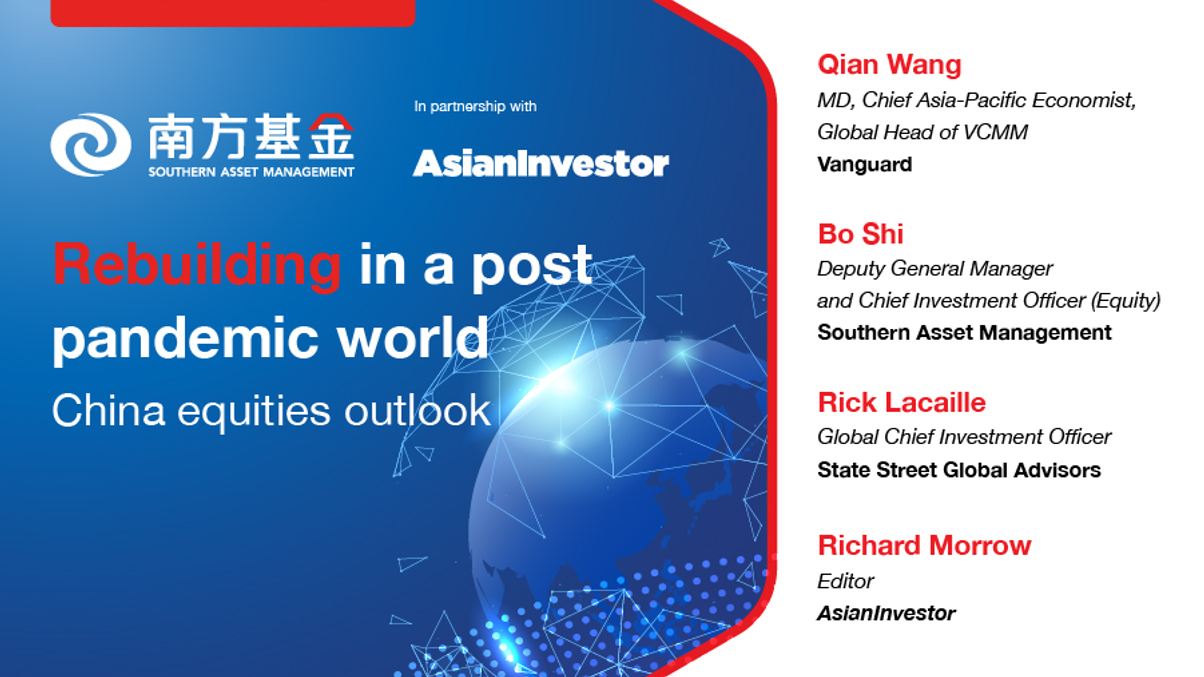China equities outlook – 2021 and beyond

Have the long-term drivers of stock performance changed since the Covid-19 outbreak?
Dr. Wang, Vanguard: Earnings growth tends to be in line with economic growth, which may become permanently lower as result of scarring effects such as corporate bankruptcies, permanent unemployment and resource re-distribution to different sectors ... the pandemic will likely accelerate business concentration trend, which should be positive for large companies.
Bo Shi, Southern Asset Management: The impact of the epidemic on the A-shares market is likely to be short-term. At the present stage, macroeconomic policies especially monetary policy and fiscal policy are the key factors that influence the A-shares market. If China continues to implement a proactive fiscal policy and a relatively easy monetary policy, it would be a booster to the domestic market.
Rick Lacaille, State Street: Yes, but this will slowly reduce as the investor base for Chinese stocks becomes more globalised, and also depending on how the relationship between China and the rest of the world evolves in the tech space.
Dr. Wang, Vanguard: The negative correlation with global markets early this year stems from the FIFO experience that China had with the pandemic … domestic sentiment has turned positive and global investors are pouring money into the China market. Longer-term, we believe the A-share market correlation with global markets will be positive, though the magnitude of correlation will still be lower than the broader EM’s correlation with the world, as the economic cycle has been largely driven by domestic demand.
Bo Shi, Southern Asset Management: In the long term, I am optimistic about technology sector as it is driven by the strong policy support and development of 5G. In the meantime, traditional sectors have benefited from the economic recovery, and there will also be some good investment opportunities as the economy improves. Companies that are overvalued should be avoided.
Rick Lacaille, State Street: Active strategies have largely performed as expected, but the extreme behaviour of the largest tech names in the US have created a greater headwind for and once again policy changes in the US post election. In China, our focus on e-commerce and healthcare as well as other technology names has been successful.
Bo Shi, Southern Asset Management: We can see that the attractiveness of consumer stocks is very prominent. We will focus on the new products, new business models and new consumption patterns that will emerge from the pandemic. In the meantime, technology sector is still promising in the long term despite its volatility.
Dr. Wang, Vanguard: From China’s perspective, there are indeed strong incentives to further liberalising its financial market. This is a critical part of RMB internationalization. As the domestic saving rate declines, the current account balance will narrow and could turn into deficit sometime in the future. While foreign direct investments are expected to remain stable at best, portfolio inflows will be critical to maintain external balance.
Rick Lacaille, State Street: President Xi has indicated that financial markets need to ensure that they demonstrate that their purpose is to serve the economy and ultimately the people, and this provides a strong catalyst for focus on sustainability. Investors looking for businesses that might enable the transition to a low carbon economy might therefore consider China.
Dr. Wang, Vanguard: We need to take a step back and understand why investors consider ESG in their investment, what matters most to them and understand how the different approaches are out there to meet their needs … higher ESG risk is not necessarily a potential threat, but offers the prospect of attractive long-term risk-adjusted return for investors. In addition, index funds are essentially permanent owners of the company and should care about ESG risk as well.
Bo Shi, Southern Asset Management: In 2019, MSCI increased its A shares’ index inclusion factor (IIF) from 15% to a 20%. The increase is expected to further encourage companies to put more emphasis on the ESG. A large number of studies show that ESG can create excess returns for investors by weeding out companies with related risks. We believe that ESG may become the new investment trend in A-shares in the near future.


